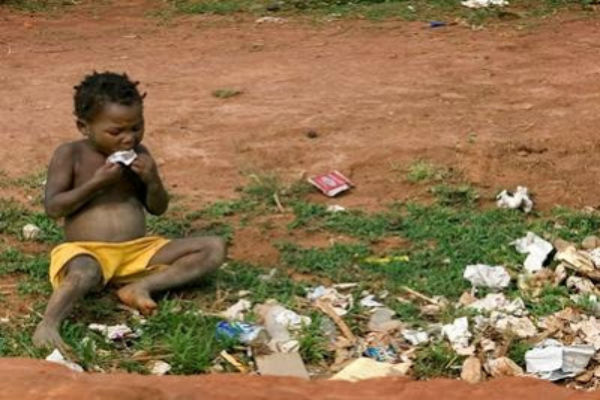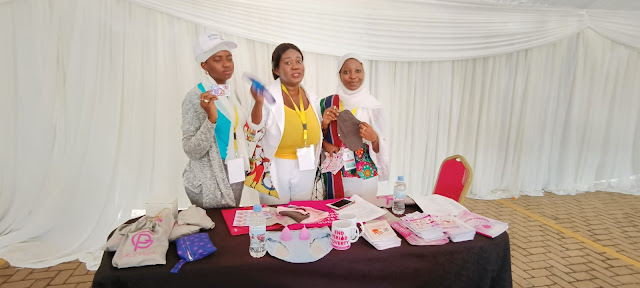Bonus: Echoes and Facts about Sustainable and Unsustainable lifestyles. Campaign with Sofonie Dala - Angola
Angola's Best Typical Dishes - Sustainable Eating
Roasted peanuts, roasted plantain and roasted cassava in both main meals and desserts, it is above all a favorite snack in Angolan communities, especially on the streets.
Grilled Bombó (grilled cassava)
Bombó is the root of cassava, dried and fermented. It is mainly used to make funge (cassava porridge). Bombó can be grilled or fried and is often sold as a snack on the street, but is also an accompaniment to main meals. Furthermore, Cassava is the main source of carbohydrates in the country.
Cassava and peanuts sustain women's businesses on the streets of Luanda
Women know how to grow and produce cassava, which is why they are the real protagonists of the value chain. Thanks to their perseverance and determination, they are able to put their products on sale”. In addition, women sell and buy cassava to eat because it increases breast milk.
Cassava and peanut sellers on the streets of Luanda
What are our local influencers doing?
Social influencer Mateus Esteita - Chairman of the general assembly of Otchiva Mangroves of Angola.
He was recently elected as the new chairman of the board of the largest environmental protection project in the country, replacing the distinguished fellow engineer Quissonde recently appointed Vice Governor of the Province of Malange.
It is not an easy replacement given the remarkable and exemplary work carried out by his predecessor and we are sure that we will work with dedication, total commitment and professionalism to enhance our project and the continuous struggle to protect the environment and its ecosystems.
Saturday, July 31st was a historic day for all members of the project "Otchiva Mangroves of Angola" in particular for our volunteers and partners.
Thus, we ended the week of the mangroves with a record number of volunteers, there were more than 650 volunteers and we planted 104,000 mangroves in the village of Tapo in Mussulo, Mateus commented.
For Angola, let us save the mangroves.
The Healthy Life campaign
Show Cooking at Candando, with the participation of Chef Luís Kitaba, they have been influencing local communities with the Healthy Life campaign, with the aim of promoting the adoption of healthier forms of eating among families.

The Healthy Life campaign features a wide variety of healthy food alternatives, products for specific nutritional needs, supplements and clothing and accessories for the practice of physical exercise.
Super Malt – Angolan Drink

The drink "3 in 1" (super food, super drink, super flavor) was one of Refriango's big bets for the year 2018. Being a non-alcoholic drink, made up of cereals, honey, calcium and nutrients, Super Malte was introduced as a healthier alternative to energy drinks, juices and soft drinks. New trends in advertising/consumer culture Advertising food
Facts about unsustainable living in the country
Dead Fish in Mangroves
In the mangroves of Lake Kussanga, a wetland adjacent to the mouth of the Chiloango River, in Cabinda, several species of fish find it very difficult to survive and develop.
Otchiva's technical team is carrying out an expedition in these very degraded ecosystems to find answers for their possible solution, for the well-being, mainly of the local community of fishermen who exploit fish, crustaceans, molluscs and other marine resources in this local ecosystem.
What led to the degradation of this ecosystem?
Why is marine life dying and no longer developing?
Why did many marine species disappear from the site?
Poverty and hunger
Due to extreme poverty few very vulnerable people look for food in the garbage and this harms the health of thousands of children.

If we look in more detail at the analysis carried out on food in Angola, we see that the factors that negatively influence the ranking are diverse: poor access to clean water, poor nutritional diversity, high food costs and high volatility in food prices.
The problem of rubbish in Luanda began to worsen in January 2021, after the provincial government suspended contracts with the cleaning operators.
Angola’s institutions do not have adequate capacity or coordination mechanisms, while partnerships with the private sector remain very weak. This is a problem for Angola’s management of municipal waste: the capital Luanda alone produces 6,000 tons of solid waste every day, which the city has struggled to manage.
Public urination - Public intoxication
 Urinating in public is illegal in every state. Defendants may be charged under a law that specifically criminalizes the act, or the prosecutor may allege that the defendant filed a public nuisance or is guilty of disorderly conduct. State law usually classifies disorderly conduct and similar crimes as misdemeanors, which are less serious offenses than felonies.
Urinating in public is illegal in every state. Defendants may be charged under a law that specifically criminalizes the act, or the prosecutor may allege that the defendant filed a public nuisance or is guilty of disorderly conduct. State law usually classifies disorderly conduct and similar crimes as misdemeanors, which are less serious offenses than felonies.Recommended Readings: https://angola.un.org/sites/default/files/2020-10/Doc-UNSDCF-Angola-ENG-0804.pdf













Comments
Post a Comment